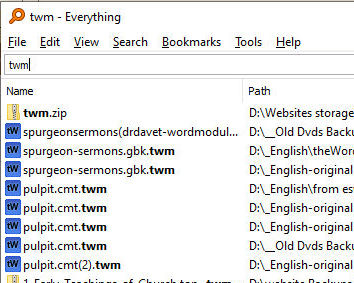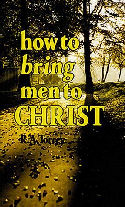Reid Blood of Jesus studies the blood of Jesus as our sacrifice and how it relates to our salvation. The importance of the blood.
Table Of Contents
Preface
I. Forgiveness Of Sins Through The Blood Of Jesus
II. How Our Sins Are Taken Away By The Blood Of Jesus
III. The Blood Of Jesus, Not Conviction Of Sin,
the Foundation Of Our Peace And Joy
IV. A Letter About The Blood Of Jesus
V. Salvation Through The Blood Of Jesus, The Gift Of God
VI. The Blood Of Jesus, Our Only Ground Of Peace With God
VII. Regeneration Through The Blood Of Jesus
VIII. Faith In The Blood Of Jesus, Essential To Salvation
IX. The Blood Of Jesus, The Believer’s Life And Peace
X. Faith In The Blood Of Jesus, The Spring Of Holiness
XI. The Blood Of Jesus, The Essence Of The Gospel
XII. The Holy Spirit’s Testimony To The Blood Of Jesus
PREFACE
“I have been religiously inclined from my earliest years. When quite little I
was wont to say my prayers many times over, for I had heard it said that
everything done on earth was written down in heaven, and I wished to have
as much as possible recorded there in my favour.
“When about ten years of age, I heard that there were some who did not
believe that the Bible was the Word of God, and that led me to surmise that
it was not sufficiently clear that it was from God; for if He had given a
revelation of His mind to man, it must have come in such a form that it
would have been impossible for any person to disbelieve it. I pictured to
myself that if God chose to do it, He could put up in great letters along the
heavens, ‘I AM THE LORD,’ and everybody would see it and believe; and
if the Bible were from Him, its revelation would be so unmistakeably clear,
that it would be impossible to doubt its divine origin.
“But this was not a settled conviction; and my incipient scepticism was
suddenly dissipated by a dream. I thought that I felt an intense heat; and so
terrible did it ultimately become, that the heavens were rent asunder and
wrapt in flames, and in the burning sky overhead I saw in large letters of
fire, ‘I AM THE LORD;’ but I had at the same time a conviction that it
was now too late for the persons who had been unbelieving to profit by it,
and those who had not believed the Bible, speaking to them in the name of
the Lord, would now find to their everlasting misery that it was true.
“Not having enjoyed an early training in Bible truth, I had many
difficulties in reference to the doctrines of revelation, and especially
regarding that of the Trinity. I could not comprehend whether God and
Christ were one or two beings; and I was too timid at the age of twelve to
ask my seniors.
“When at school I was deeply impressed with the solemnity and propriety
of daily worship, and fervently wished, on returning home, to be able to
have family worship; but my timidity was stronger than my convictions,
and it was not attempted. Having no Christian friend to give me counsel,
direction, and encouragement, my religious impressions by and by
evaporated, and my character was left very much to the formative power of
surrounding circumstances. But having been instructed when at school in a
neighbouring town in what was right, and counselled, on leaving it, by a
Christian lady of the town, as to how I ought to conduct myself on my
return home, and being put in a responsible situation, I felt a moral weight
upon my spirit, and gravitated towards the good, the right, and the true.
“I was much given to reading, and from having abundance of the choicest
books of a historical and literary character, I was permitted to gratify my
taste. The acquisition of information was my great aim. I had an ardent
thirst for knowledge, and every species of works with the exception of
light literature, for which I had a settled contempt, was devoured by me
both day and night. Solid literature suited my disposition, and I stored my
mind with useful information on a variety of subjects. I was once so
engrossed with books, that when about fifteen years old I left off going to
church, that I might have the quiet of the Lord’s day for reading. But this I
soon discovered to be very wrong, and it was discontinued.
“In the course of years I became acquainted with the most evangelical
minister in the town where I resided; and I left an eloquent preacher, whose
discourses were to me only ‘a very lovely song,’ and attended the ministry
of the gospel of the grace of God. This very materially changed the current
of my thinking and the kind of my reading. Being naturally susceptible of
religious impressions, I became serious, devout, and religious. I carried my
thirst for knowledge with me into my religion, and I searched the
Scriptures and read religious books with an earnestness and constancy
which were absorbing. I got Fleetwood’s ‘Life of Christ’ and read it many
times; and so engrossing was it that I sometimes sat reading it until two or
three o’clock in the morning, without weariness. The circumstances in
which I was living, and the trials which thickened over my path, were no
doubt instumental in sobering my buoyant spirit and throwing me upon a
course of religious duty.
“From the instructions of the pulpit, and my own reading, I soon became,
in some measure, acquainted with the system of Christian doctrine; and
believing that I was a real Christian because I knew about Christian truth
and Christian experience, and had a liking for all that was good, I thought
it was my duty to join myself to the church. I was quite able to answer all
the questions that were put to me, for I was not asked, Are you born again?
I was admitted, and, as a member, received the Lord’s Supper regularly.
Even at that time I walked a considerable distance every Lord’s Day to
attend a prayer-meeting at eight o’clock in the morning; but it was all
‘works’, for I felt as if I were acquiring extraordinary merit by the
performance of this extraordinary duty. I had a real pleasure in doing well.
After this I attended a Bible class, and prepared so thoroughly for it that I
was able to outshine all the rest in my knowledge of the subjects which
were submitted for our consideration. In order the more thoroughly to
master the contents of the Scriptures, and satisfy my own mind, I set to
reading the Bible with a Commentary; and after having read it with one
commentary I got another, and perused it with the most assiduous
earnestness and perseverance.
With these helps I passed many hours in
searching the Scriptures, and enjoyed it more than anything else; but it was
from no love to God Himself, but simply to acquire information. I do not
remember that I had a spiritual sense of sin, either before becoming a
church-member, or for a number of years after doing so, and consequently
I read the Bible more with my intellect than with my conscience and my
heart. I wanted ‘by searching’ to ‘find out God,’ ignorant of the fact that
He can be known only through our spiritual necessities. I saw the truth, as I
believed, clearly enough, but never having been really convinced that I was
an utterly lost sinner, I had never prayed from the heart, ‘Lord, save me, I
perish!’
“But in course of years I became less satisfied with my religion and with
myself; but when unhappy I did not go direct to Jesus, but, on the contrary,
I tried to read myself right, or pray myself right, or work myself right, and
for a time I succeeded. I was most strict in all my deportment,
conscientious and exemplary; and having a factitious conscience, I felt
miserable if I failed any day to read a good deal, or perform other duties.
Morning calls often annoyed me, proving, as they frequently did, an
interruption in my round of prescribed duty; and when I met with
agreeable, intelligent friends, and went thoroughly into their conversation,
I forgot all about divine things; and when I was left to myself again, after a
time of forgetfulness of God, I sometimes felt that I had tremendous
leeway to make up, and I set about doing it with all my might. When thus
drawn away from religion, I would sometimes have a protracted season of
forgetfulness of God, but it was generally followed by a season of conflict,
remorse, struggling, and persevering penance. To keep up a religion on my
plan was a very difficult matter, and very unsatisfactory. When I did well,
read well, and stored up Scripture truth in my mind, did my duty as a
Sunday-school teacher, tract-distributor, and district-visitor, and was
sufficiently earnest, I felt myself all right; but if I failed in duty, I
continued miserable.
“Being perfectly sincere and conscientious, consistent in my conduct, and
considered truly pious by myself and others,—I waded on through this
legal mire for many years; and it never occurred to me that there must be a
radical defect about my religion. My heart was unsatisfied; my conscience,
when in any measure awakened, was silenced by duty, but not satisfied by
righteousness, nor purged from dead works by the blood of the Righteous
One. My error was in believing that religion consisted in knowing, apart
from realising; and my conscience not being spiritually aroused, I
persevered in my delusion for about a dozen of years.
“I believe now that there was one error which I committed, which tended
more than anything to keep me in my unhappy condition,—I considered
my prayers so utterly unworthy to be presented to God, that instead of
throwing myself in all my sinfulness and unworthiness before the throne of
grace, and getting into immediate contact with the God of salvation, I
employed exclusively the prayers of others. I frequently used ejaculatory
prayers of my own throughout the course of the day; but when I came
before God formally, I felt so utterly unworthy and unable to order my
speech before Him, that I was always constrained to use the language of
others; for, prayer being regarded as a meritorious duty, I felt that it must
be done well in order to be accepted, and I feared to commit myself to a
lengthened address to the Diving Majesty. The Holy Ghost would have
helped my infirmities, and made intercession within me, but I had not the
most remote conception that I might, by a believing glance of my eye
towards heaven, secure His gracious aid; and so, instead of ‘praying in the
Holy Ghost,’ I prayed merely in the words of my fellow-men, which
sometimes met my condition, but more frequently did not, and always
seemed to keep me at a distance from God, and from enjoying direct
personal intercourse with ‘the Father of mercies,’ (2 Cor 1:3).
“In the unsatisfactory manner which I have just described, I wasted and
lost my young years, ‘and was nothing bettered, but rather grew worse,’
(Mark 6:26). I had been religious, dutiful, and consistent; but it had been a
mere ‘going about to establish my own righteousness’ (Rom 10:3), for my
system of service ignored the central fact of Divine Revelation,—that
‘Christ Jesus came into the world to save sinners,’ (1 Tim 1:15). ‘But God,
who is rich in mercy,’ (Eph 2:4), had compassion on me, and by the grace
of His Holy Spirit, ‘revealed His ‘Son in me,’ (Gal 1:16) and turned ‘the
shadow of death into the morning,’ (Amos 5:8). The first gleam of gospel
light which entered my darkened mind was in reading a little tract in which
Luther’s conversion is referred to. When the words of the Creed, ‘I believe
in the forgiveness of sins,’ were pronounced in his hearing, he took them
up and repeated them on his bed of sickness; but he was told he must
believe not only in the forgiveness of David’s sins or Peter’s sins, but that
he must believe in the forgiveness of his own sins. This truth became the
inlet of pardon and peace to his soul; and on reading it I felt that my soul
was being visited with celestial light; and I was led to see that pardon of
sin was a present and personal blessing. But I was not satisfied that I
believed aright.
“Shortly after, I was reading Romaine’s ‘Life of Faith,’ and came upon this
sentiment,—That the weakest believer is as precious to Christ and as safe
as the strongest. The Dayspring from on high visited me, and, by and by, I
felt myself bathed in the noon-tide radiance of Heaven’s glorious light. The
great Enlightener filled my soul with His transforming presence. He who
commanded the light to shine out of darkness had shined in my heart, ‘to
give the light of the knowledge of the glory of God in the face of Jesus
Christ.’ I was conscious of a Divine Presence with me, and believed that
the holy light which had entered my soul came direct from heaven. Christ
from that moment became the great central object of my contemplation.
Immediately as I became enlightened, Jesus appeared to be the centre, sun,
moon, and essence of Revelation, and with Him as a key, I thought I could
understand all that ever was written on the subject of religion. My spirit
rejoiced in God my Saviour, and self and its services were thought on only
to be condemned as utterly vile and worthless. Christ was all.
Download PDF
reid-the-blood-of-jesus49pgs.pdf (0 downloads )Reid Blood of Jesus



 Helpful Windows User Tip for "Searching Everything" on your PC.
Helpful Windows User Tip for "Searching Everything" on your PC.
